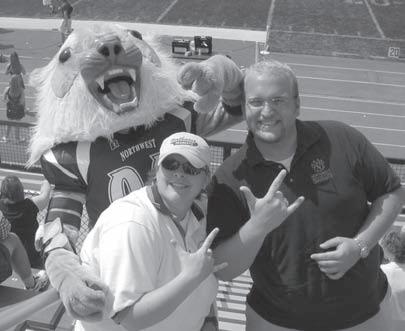N
ov. 6, 2004, marked the 150th anniversary of the birth of America’s “March King,” John Philip Sousa. As this date fell on a Saturday, many college and university marching bands dedicated their halftime shows to Sousa by performing some of his best known compositions: The Thunderer, Semper Fidelis, The Liberty Bell, El Capitan and of course, The Stars and Stripes Forever. Sousa was the icon of his era and was to the march what Johann Strauss was to the waltz. Yet he was much more than a prolific composer of marches. He was an entertainer, a true patriot, a deeply religious man and had a profound impact on the quality and development of bands. Sousa transformed the United States Marine Band from a mediocre group to a first-rate ensemble; he attempted to standardize the instrumentation of the concert band; he toured the world with his polished civilian band; he championed the rights of composers and performers; he enriched the repertoire through his numerous compositions and transcriptions; he was a pioneer of the American musical theatre and he gave freely of his time to help nurture the growth of the school band movement. All of this was done in a deliberate plan to help raise America’s artistic standards. In an era prior to telephones, radio and even silent movies; Sousa provided quality music to towns and cities across the world. When Sousa’s band came to your town, schools and businesses closed for the matinee performance. People flocked to the concerts from miles around – you knew his name from player piano rolls and countless pieces of sheet music. Sousa was simply unsurpassed as the world’s most popular musician. Sousa was also a member of Kappa Kappa Psi. He holds membership #25 from the Delta chapter at the University of Oklahoma, becoming an honorary member on Jan. 21, 1922. At this time there were only four chapters of Kappa Kappa Psi, a then-fledgling fraternity that was barely two years old.
Scott P. Squyres, a member from the Delta Chapter, served as the second Grand (National) President (19221926) of Kappa Kappa Psi. The year following Sousa’s death, in the May, 1933, edition of The Baton (the predecessor to The PODIUM,) Squyres recalled the circumstances and details of presenting Sousa with an honorary membership: “…it was my good pleasure as Grand President of the Fraternity to invite Mr. Sousa to be the guest of the Delta Chapter and also the Alpha Chapter at a special dinner given in his honor at the Huckins Hotel in Oklahoma City. Brother Sousa graciously accepted the invitation in answer to my telephone call to him in Waco, Texas, where he was then giving a concert. “We wanted to make him an Honorary Member of our Fraternity but we hardly knew just how to proceed. Most of us had experience in rushing and pledging men in college but we had never had the experience of pledging a great musician to our Fraternity and to initiate him into the innermost sanctums… “…Brother Robertson brought the car to the hotel and came in and we had a longer talk with Brother Sousa. I extended an invitation to drive with us through the city for the exercise and pleasure of seeing our biggest city of the state. He accepted our invitation and together with two of his lady soloists we drove about the city before the matinee concert. “…While we were driving I was doing all the thinking I could as to how to approach him with an invitation to become a pledge to our Fraternity. Delta Chapter had already voted him in but he didn’t know it. I was sitting in the front seat with Brother Robertson and half turning around to talk to Brother Sousa in the rear seat with his soloists. I talked to him about everything I could think of; then I talked to him about college fraternities and music fraternities in particular. Then I asked him if he was a member of an honorary college musical fraternity. He said he was not a member of any such fraternity, then I asked him if he had any reason why he could not belong to a college musical fraternity and he told me there wasn’t any








